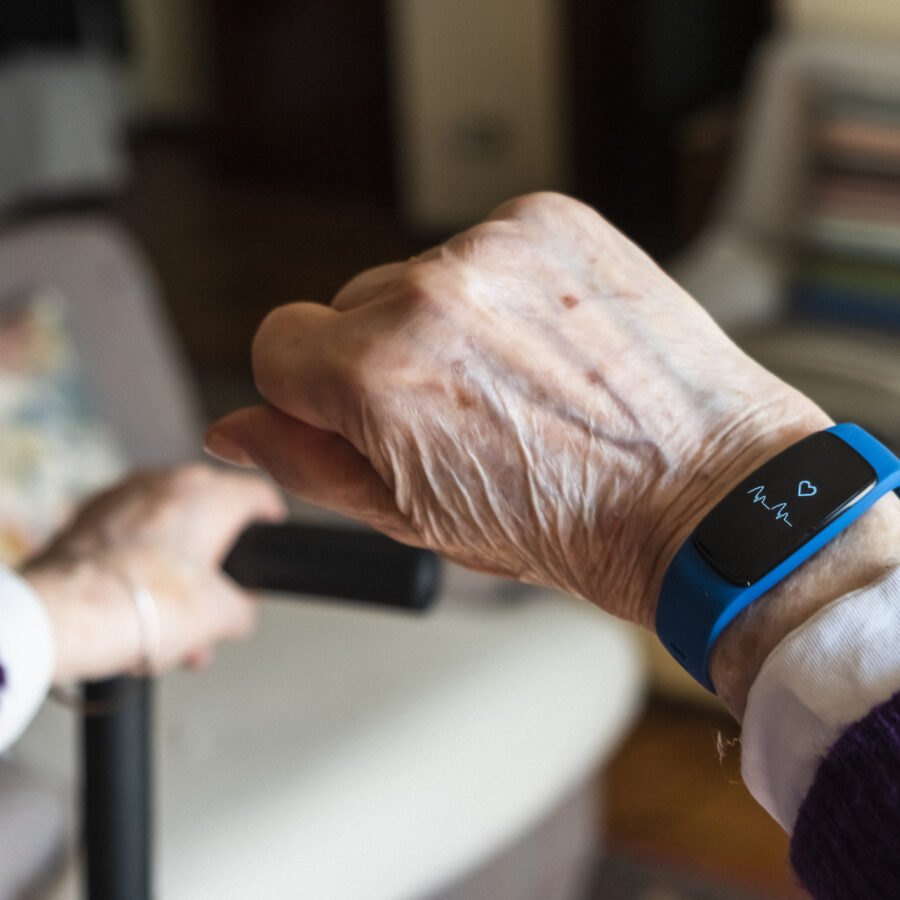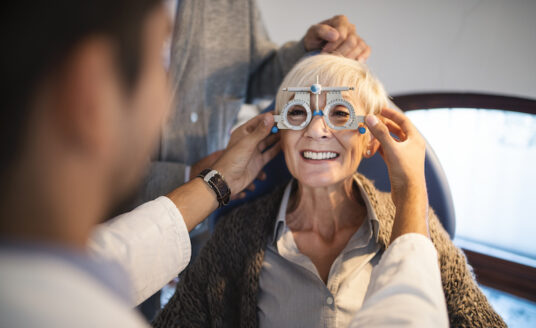In 1906, Dr. Alois Alzheimer publicly reported on the first case of the disease that would bear his name. Even so, most people with Alzheimer’s were labeled as “senile” well into the late 1970s. Other than the efforts of their families to provide care, there were few resources for these people beyond institutional care.
Today, technology abounds to provide gadgets for seniors that assist, protect, and enrich the lives of those with Alzheimer’s and other forms of dementia.
Voice-Activated Assistants
Google Home and Amazon Echo are relatively simple to operate and provide a large number of services, including news and weather reports. They play music and games and tell jokes. They can also control lights and thermostats and remind seniors to take their medications or call someone for help.
Video Calling
Video-calling offerings like Skype and FaceTime are good ways to check on a senior who is still in the early stages of dementia. Your ability to see Mom or Dad can help tell you how well they are doing.
Clocks
Losing track of time is a symptom of dementia, so there are clocks specifically designed for dementia patients. Large graphics tell the time, date, day, and room temperature. Some clocks also indicate if it is night or day, or afternoon or morning.
Picture Phones
As dementia makes it progressively more difficult to recall or retrieve phone numbers, picture phones are great gadgets for seniors that provide one-touch dialing on a single screen with corresponding photos of loved ones and friends instead of phone numbers.
Reminder Messages
Voice-reminder devices can play timed pre-recorded messages from caregivers who do not live in the senior’s home. Messages could include a prompt to lock doors to the house at a certain time of evening, or a reminder to take medications. Some systems require the senior to press a button acknowledging they have received the message. Failure to do so sends an alert to the caregiver.
Digital Pill Dispensers
Digital pill dispensers can be programmed to dispense the correct medications at the right time, remind the senior to take the medications, and report to a caregiver if the medications were not taken.
Calendar Apps
Google Calendar is geared more for the in-home caregiver who is trying to juggle his or her life with the needs of a senior loved one. Users can create more than one calendar to track and organize multiple schedules, set up appointments, send emails, receive notifications, monitor medication schedules and share their calendars with others.
Does it Work for Your Senior?
Before purchasing the technology, careful consideration should be given to the specific needs and personal preferences of the senior adult with dementia. We must remember the effects of the disease, and the senior’s ability to cope with it, are unique to each person.
What is their cognitive impairment? What is their ability or willingness to use the technology? For example: If you attach a tracking device to Dad’s shirt, will he leave it on when he begins to wander? What if Mom constantly fidgets with her fall protection device, sending out false alarms? If a device requires recharging, who will remember to do that?
Consultation with the senior’s physician will provide insight into the condition of your loved and what changes you will see in the future.
While it’s tempting to provide a senior loved one with technology to cover every conceivable danger or need, he or she may have their own idea about using it. In fact, the senior may become resentful and embarrassed by all the fuss and refuse to cooperate.
However, many people with dementia get used to using and appreciating technology if it is introduced to them early enough. As their dementia progresses, adjustments as to what will provide benefits or simply confuse and frustrate them will have to be made. So, the key is to find gadgets for seniors that clearly help, and perhaps even bring some joy back into his or her life.
Advancements in technology have made our lives easier in many ways. To learn about some of the tools available to you, check out the Technology section on our blog.
| With 133 years of experience, Bethesda has become a leader in senior care, offering independent living, assisted living, memory care, and skilled nursing. To see if memory care is right for your family, tour any of our communities, including Bethesda Dilworth, Bethesda Southgate, and Bethesda Hawthorne Place. After meeting with our residents and highly trained staff, you will instantly feel at home. |



